After the Battle of Zhuolu, the two groups of China and Dongyi accelerated their integration. In some areas, the ancestors belonging to the two tribal groups were intertwined, and the cultures influenced each other. Increasingly, you have me in you and you in me. . In 4000 BC, the physical characteristics of the "Yangshao people" and "Dawenkou people" representing the Huaxia and Dongyi groups were different. They belonged to two different ancient "ethnic groups" of the same kind, and reached 3000 BC. The physical characteristics of residents found in Miaodigou, Shanxian County, Henan Province at this time (Miaodigou Phase II Culture) are closely related to the above-mentioned two "ethnic groups", which should be the result of this integration.
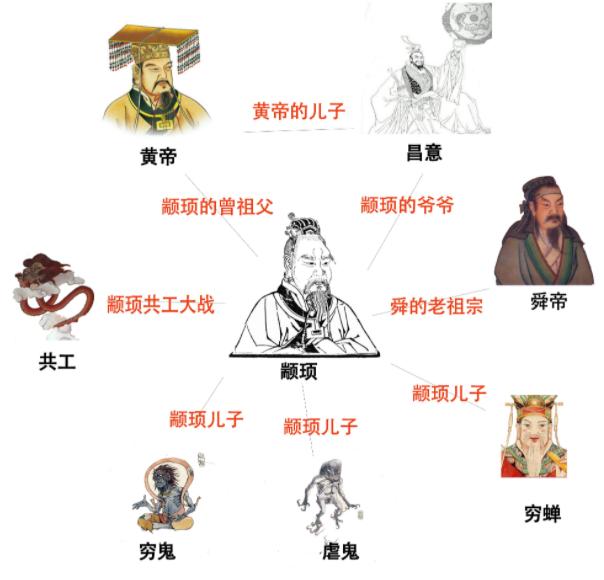
It is this integration that has accelerated the cultural development of Henan and its neighboring areas, and entered the Longshan cultural era earlier. Zhuan Xu, who is said to be closely related to the Huaxia and Dongyi Groups, was born under this historical background. During this period, there was a war between Zhuanxu and Gonggong for the emperor, about 4,500 years ago.
1. Zhuan Xu-the ancient emperor who continued the achievements of the Yellow EmperorZhuanxu belonged to the Huaxia Group. Legend has it that he was a descendant of the Yellow Emperor. The main members of the Huaxia Group, Yu and Xiahou, believed that their distant ancestor was the Yellow Emperor and the most recent ancestor was Zhuanxu. Therefore, in their ceremonies, "the Yellow Emperor and the ancestor Zhuanxu" , Held the heaviest sacrifice to these two ancient emperors. "Records of the Five Emperors" summarizes Zhuan Xu's achievements as being able to "nourish talents for the land, carry time as the sky, rely on ghosts and gods to rule righteousness, control the vitality for enlightenment, and make sincerity to sacrifice", that is, he can respect ghosts and gods. Respect and inferiority, the four o'clock and five elements of the spirit, instruct all people, so that "moving things, big and small gods, illuminated by the sun and moon, no one can belong to", that is, all directions are flat, come and be subdued.
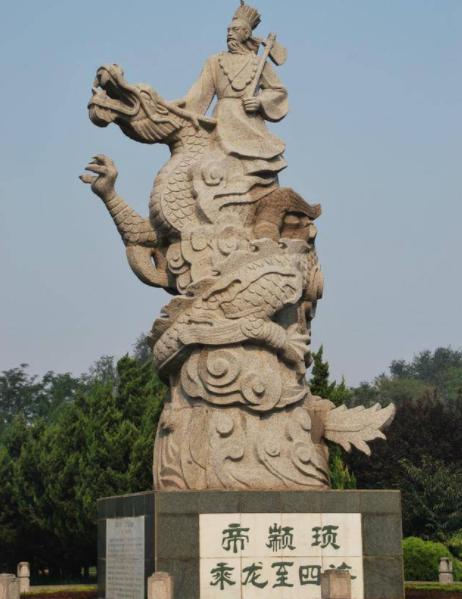
Although these words of praise are exaggerated, it can be seen that Zhuan Xu, like the Huangdi, his prestige and influence have long surpassed his own clan tribes and tribal unions.
Huangdi is the representative of the highest military chief who created the tribal union. He set a precedent for the integration of judicial power, sacrificial power, and military command power. Zhuan Xu is also a one-person and three-term figure. He is undoubtedly mastering the laws and enlightening the people. The chief with the right to judge; he is obviously a religious master who can communicate with ghosts and gods and preside over rituals; it is also said that he was born in Ruoshui, "the first to wear fighting," is a symbol of military power.
Zhuanxu's era was later than the Yellow Emperor, and the society has undergone great changes. There was still a legacy of matriarchy in the Yellow Emperor, and the goddesses (Xuan and Xuannv) played an extremely important role in the Battle of Zhuolu. During the Zhuanxu period, the patriarchy was further established. According to the legend, "The law of the emperor Zhuanxu, the woman who does not open the way to the man, but to the four darts", that is to say, the woman who does not avoid the man on the road has a demon on her body. For the awkward, the shaman must behave to her at the crossroads and be shown to the public, which stipulates the inferiority of men and women from the aspect of religious etiquette.
At the same time, in order to adapt to the new situation, Zhuan Xu also carried out religious reform, the so-called "Jedi Tiantong". In ancient society, there was only a natural division of labor between the sexes. With the emergence of primitive religion, witchcraft appeared, but they were not full-time. At that time, everyone was able to communicate with the gods and every family had a history of witchcraft. This was in contrast to the narrow clan system. Adapted. However, when social organizations have formed a large-scale tribal union, if everyone can communicate with God and convey the will of God, it will inevitably affect the unified will and action of the union.
Zhuanxu's reform was to cut off the communication between men and gods, and to reform the organs of the clan system. In addition to the highest leader of the consortium, he was the highest leader of religion and served as the highest religious leader. The command of the cluster gods was communicated to the bottom; "Huozheng" was also set up, and "Li" was appointed to perform its duties to manage the witches and people on the earth, so that religious undertakings were monopolized by a few people, and then gradually transformed into a tool of the ruling class.
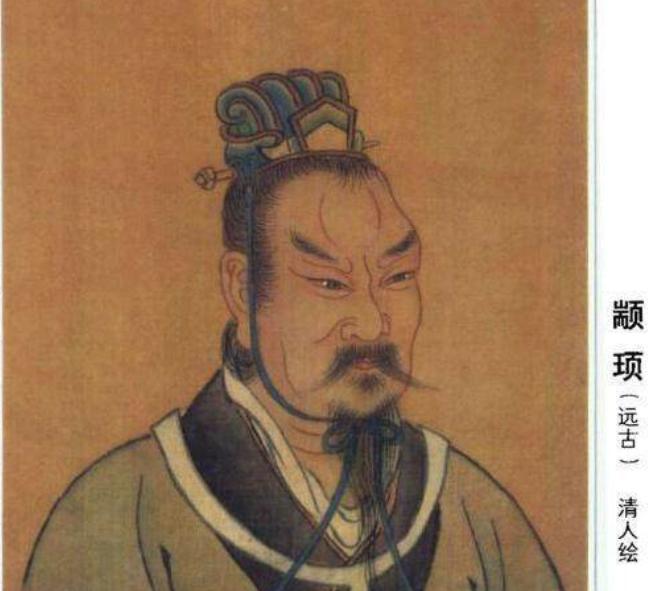
But at that time, this was a historical progress. The positions of "Nanzheng" and "Huozheng" later evolved into official positions such as "Uncle Zong" and "Situ" in a class society. The observation of the moon and stars laid the foundation for the emergence of astronomical calendars. In short, Zhuanxu's reform was a big step forward from the development of history to civilization after the Yellow Emperor, so he was revered as an ancient emperor who could repair the merits of the Yellow Emperor.
Zhuanxu belongs to the China Group and has close ties with the Dongyi Group. It is said that Zhuanxu's father, Chang, means "the son of the Yellow Emperor, who lives in Ruo Shui as a prince with virtue and inferiority". The place of Ruo Shui is unknown. There is also a legend that "the Great Wall outside the East China Sea, the country of Shaohao, and Shaohao Yu Zhuanxu here." Zhi Zhuanxu's ancestors were forced to leave their ancestral homes due to power struggles or violations of customary laws, and went to the east, where Zhuanxu lived. He grew up in the land of Shaohao and was nurtured by the Shaohao culture. He was once elected as one of the military leaders, "Zuo Shaohao" and "Ping up the Jiuli Rebellion."
This Jiuli is no longer Chi You's nine relative tribes, but refers to some tribes of Yi people in general. The so-called "Nine Barbarians Rebellion" should be a battle for supremacy that often occurred in the heroic era. According to the literature, the Ruins of Zhuanxu were called Emperor Qiu. In today's Puyang, Henan Province, where the legendary Zhuanxu City has long existed, Puyang is not far from the legendary Chiyou Tomb, Jiantuo Tomb and the "Shaohao Ruins" Qufu, which exactly explains him The reason for the close relationship with the Dongyi and China Group. Puyang belongs to the activities of the Huaxia Group. The ancestors of Yangshao Culture lived there for a long time. 6000 years ago, there was a large-scale settlement protected by large and small ditches, and the “First Dragon of China”—a large-scale plastic pile made of mussel shells was unearthed. The dragon and tiger are placed on both sides of the bones of a mature man.
More than 4,000 years ago, it prospered again and formed a large settlement. It confirmed that the worship of dragons in the land of China appeared very early. The legend of Huangdi Zhaoyinglong to help the battle and Zhuanxu's Emperor Qiu reflected the shadow of true history and also showed that Zhuanxu After making his debut in the land of Shaohao, he returned to the land of his ancestors to make contributions.
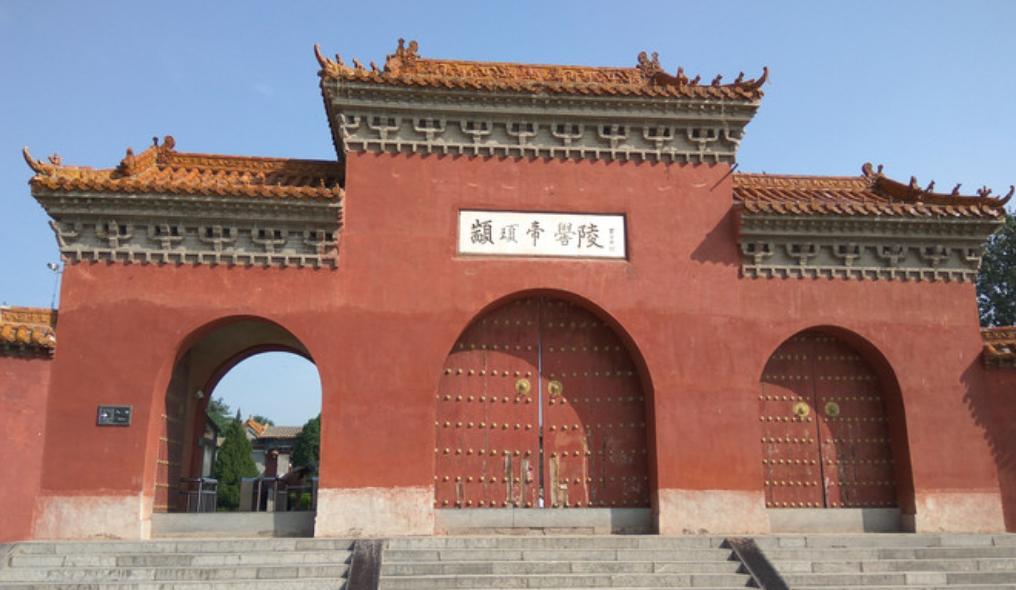
Zhuanxu's ability to become an ancient emperor with three powers in one, with a reputation spread far and wide, was inseparable from the victory of the Gonggong War.
2. The battle between Zhuanxu and Gonggong
About 4,500 years ago, Zhuan Xu and Gonggong fought a battle. Regarding this war, there are two statements in the literature: one says that "Zhuanxu tastes and works together", "together is a water hazard, so Zhuanxu punishes it"; the other is that "the former co-workers and Zhuanxu fight for the emperor" , Angrily touched the mountain of insecurity..." Knowing that the cause of the war is related to floods, it is essentially a war of "striving for the emperor".
Since Zhuanxu was an ancient emperor who was famous in history and was able to repair the merits of the Yellow Emperor, the theory of Gonggong and Zhuanxu's struggle for emperor has spread widely. In line with the original appearance of history.
Because when Zhuan Xu stepped onto the stage of history, the Gonggong clan was already an ancient clan. Gonggong family lived together, named after Gongshui, and its place is now Hui County, Henan. Researchers have long pointed out that when the Yellow River was in the upper reaches of the river, its water potential was still small. It flowed through mountains or was tightly bound by the Loess Plateau. Waiting for the tributaries, the rushing impact often becomes a major disaster. The Gonggong (Huixian) is an area prone to floods on the north bank of the ancient Yellow River turning from west to northeast. The Gonggong people who have lived here for generations are ancient people who have struggled with water for generations and have accumulated a certain amount of experience in water control.
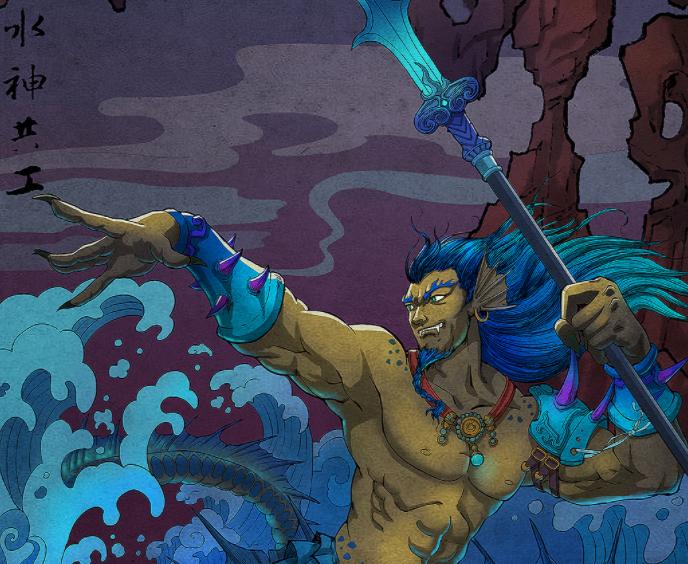
According to the literature, "Gonggong's family was based on the water period, so the water was named for the navy." All this shows that Gong Gong has a close relationship with water and enjoys prestige because of its achievements in water control. "Bo Jiuyou" means that he occupies an important position in a vast tribal alliance or consortium, and one of the leaders was enshrined as the Houtu, the god of society, for his great achievements in "the ability to level the nine lands".
Ancient documents also record the decline and fall of the Gonggong clan, that is, “there was a co-worker and self-satisfaction, no ministers, long-time high officials, under-government chaos, no people attached”, so later rulers of the Zhou Dynasty summarized the history When the lessons are learned from the rise and fall, they are summarized as "long-empty positions are in danger." In short, before the war with Zhuanxu, the leader of Gonggong was at the top of a pyramid-like authority.
Because social productivity was still very low at that time, the method of water control was primitive, mainly using the method of "falling high and low". When the climate is relatively dry and the flooding is not serious, the method of shoveling high and cushioning low can still play a certain role, but with With the advent of the period of climate fluctuations between 4,700 and 4000 years ago, due to the increase and increase in floods, the old law has no longer been effective. Moreover, the leaders of the Gonggong clan abandoned the clan democratic system and centralized power. The floods have caused internal conflicts and conflicts with other tribes to intensify. This is the document that Gonggong's “guard against all rivers and bury the reservoirs in order to harm the world. One of the historical backgrounds of the industrial war.
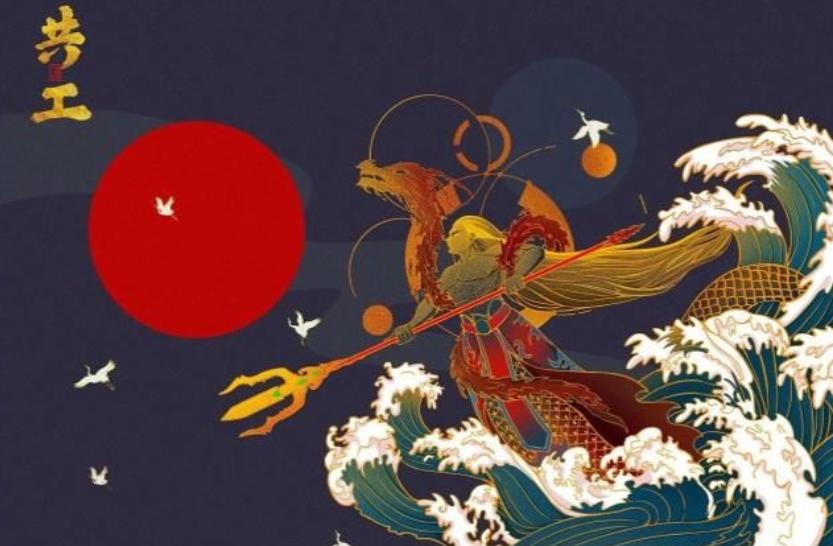
On the other hand, the land of Zhuanxu-Emperor Qiu is now Puyang, Henan. It is on the east bank of the ancient Yellow River, and the straight line distance from Gong (Hui County) in Hexi is less than 200 kilometers, but it is close to the lower reaches. The ancient Yellow River flows to the northeast from Hui County. After today's Junxian County and Huaxian County, it rushed eastward towards Puyang, and then turned northward, so Diqiu was also a place vulnerable to flooding. Moreover, Gonggong's water management made many mistakes. Diqiu was the first to be affected. The floods are increasing, and the contradiction with the upper reaches of Gonggong is deepening.
Not only that, as Zhuanxu who returned to his ancestral home as an adult, he must have military exploits in order to establish his prestige, because this is the age of advocating force, and the Gonggong clan is in the midst of the turbulence of human affairs, internal and external contradictions are becoming increasingly acute and starting to move. At the time of decline, Zhuanxu launched a war of "struggle for the emperor" with Gonggong.
The war was going very fiercely. According to the literature, Gonggong "the mountain of anger and insufficiency broke the Tianzhu, and the earth was destroyed. The sky fell to the northwest, so the sun, the moon and the stars moved away, and the earth was dissatisfied with the southeast, so the water rushed to the dust." The arrogant and arrogant leader of Gonggong was very angry when confronted with Zhuanxu's challenge. He was probably desperate to use the accumulated experience of water control to fight back against Zhuanxu by flooding. Some researchers believe that the literature records that “the Gonggong oscillates floods with thin air. The "empty mulberry" of "Sang" is the place where Zhuanxu "actually places empty mulberry" in "Lü Shichunqiu·Gu Le Pian", in the southwest of Diqiu, so the above record reflects that Gonggong once used floods to flood the southwest of the old course of the Yellow River. Empty sangwo wild.
Calling the wind and calling the rain, hoping to activate the natural forces to help oneself, has appeared in the war of the Yellow Emperor, but it was only witchcraft and fantasy at that time, and the Gonggong family has accumulated high ground leveling, low ground leveling, prevention of river water, and decisive accumulation. The so-called "fallen mountain", "Chongshou", "Fangchuan", "Dou Ze" and other water management experience are fully capable of beggar neighbors and flood the empty mulberry with water, but it has caused unexpected and serious consequences, leaving it for future generations. "The sky is tilted towards the northwest" and "the earth is dissatisfied with the southeast" are memories of the collapse of the sky and the earth.
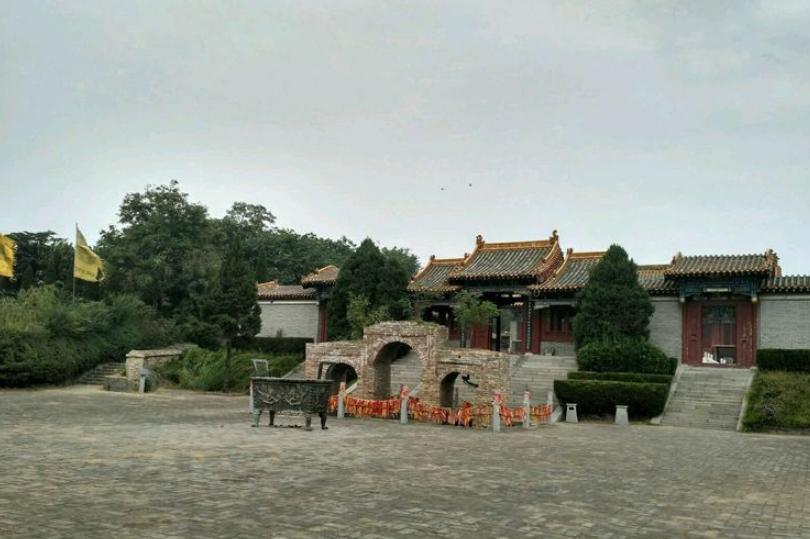
Despite this, the Gonggongs still failed to win the victory. They received much help and lost their morals. The Gonggongs have long been condemned by history for causing floods, and they have left such historical lessons: , Don't Fang Chuan, Don't Dou Ze... The old Gonggong abandoned this way...to fall high, to harm the world... Disasters prosper and work together to destroy", although there is only a vague memory of Gonggong's practices at the time. , The summary is not accurate, but the condemnation of the use of floods to "harm the world" is very clear.
This is a "struggle for emperor" war, and Zhuanxu and Gonggong are descendants of Huangdi and Yandi respectively, and belong to the same tribal group, so the ending of the war is slightly like the battle between Huangdi and Yandi, and both sides win and lose. All stay in the same tribal union. However, Zhuanxu replaced the status of Gonggong's "Bo Jiuyou" and was even more respected as "Emperor Zhuan Suo". Gonggong was "both but not king", but he was still active on the historical stage for a long time.
Ru Yaoshi discussed the candidates for successor in the council. Huandou once proposed that “work together to gather meritorious work is available,” but Yao vetoed it. It is also said that "Yao wanted to preach the world to Shun", and Gonggong opposed the saying "Which one used the world to preach to Pifhu", Yao did not listen, "raised soldiers and punish", and even Yu still had a record of "fighting Gonggong". It can be seen that in the Yao, Shunyu era, after being a Xuanhe ancient clan, the Gonggong clan has always lived in the ranks of clan aristocrats and participated in a series of power struggles.
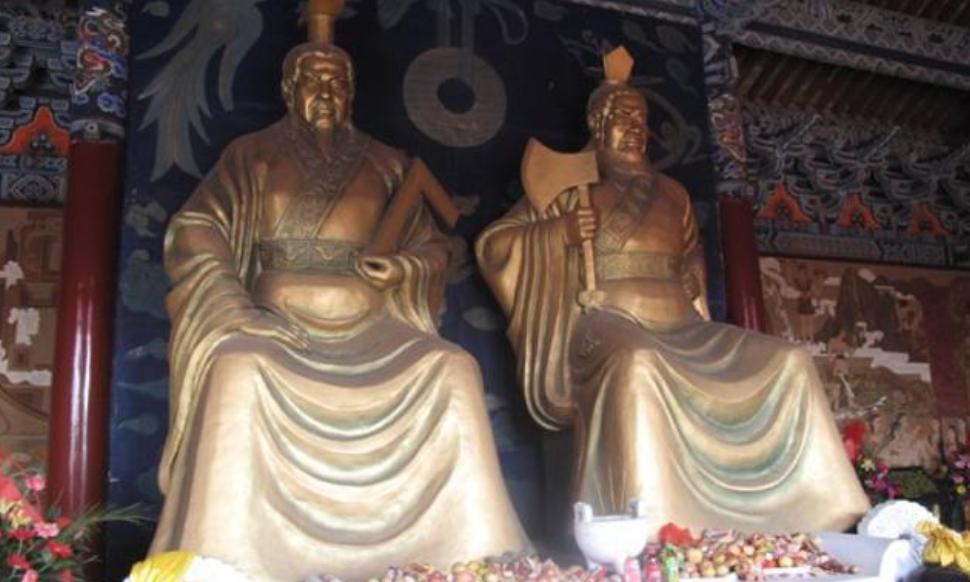
Therefore, some researchers believe that the war between Zhuanxu and Gonggong can be described as a clue to the Huangyan dispute.
(End of text)



Leave a Comment